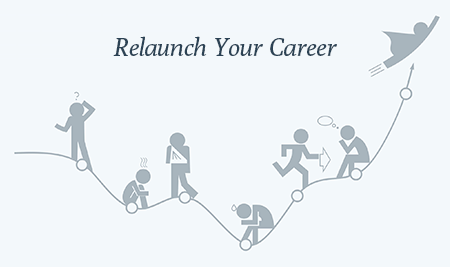Self-driving cars. Artificial Intelligence. The Internet of Things.
These are some of the elements that come to mind when the future is mentioned.
Imagine a window where you can see yourself in the future. Can you see yourself working in this environment? Or has a robot already replaced you?
How are you today?
The current working landscape is different from five or ten years ago. It has changed, and will continue to do so.
Technological innovation, groundbreaking discoveries, globalization, social transformation, and even climate change contribute to the sweeping transitions in the work environment.
All of these, one way or another, have major implications on the way people work. They have caused disruptive changes in workplaces like job redundancies and displacements.
According to the World Economic Forum’s (WEF) The Future of Jobsreport, today’s trends could lead to a total loss of 7.1 million jobs due to the changes in the employment market within the years 2015 to 2020.
This upset in the job market especially affects people who occupy routine white-collar positions such as office and administrative roles. There is an upside to this story, though, with a gain of 2 million jobs in the fields of architecture, IT, engineering, and mathematics.
What does tomorrow hold?
If you were an employee holding on to a job that you think is precariously close to becoming extinct, would you not want to protect yourself from being adversely affected by the swift transformations brought about by the Fourth Industrial Revolution?
While a rise in jobs related to science, technology, engineering, and mathematics (STEM) is projected to happen in the next few years, does this mean that you need to confine yourself to study related courses? Will you need to battle a sea of engineers, mathematicians, and IT geniuses to find or hold on to a job?
The same report mentions that it may not be necessarily so.
“Overall, social skills— such as persuasion, emotional intelligence and teaching others—will be in higher demand across industries than narrow technical skills, such as programming or equipment operation and control.”
In a nutshell, strong social and collaborative skills will be needed to complement technical skills.
How do you get ready for the future?
If you don’t want to be left behind in the rat race, then you will need to invest in yourself.
This means that you will have to continuously polish the skill set that you currently have.
You should also be open to even going back to the classroom for further studies or learn a new course altogether. In order to stay relevant to the changing times, you will need to adapt by arming yourself with the appropriate knowledge and skills that will equip you to survive and thrive.
According to Klaus Schwab, Founder and Executive Chairman of the World Economic Forum, in his preface for the Towards a Reskilling Revolution report, “Individual workers will have to engage in lifelong learningif they are to remain not just employable but are to achieve fulfilling and rewarding careers that allow them to maximize their employment opportunities”.
So even if you are a data analyst now (a job that is said to be in demand in the future), you should not rest on your laurels by doing the following things:
- Upskilling and looking into professional development courses can help you gain other employment opportunities.
- Take advantage of skills trainings within your company.
- Attend conferences that aim to strengthen your current skills or endow you with new knowledge.
As a guide, here are some of the skills that you can harness so you can face Industrial Revolution 4.0 with confidence:
1. Leadership and Management Skills
Whether you are a new employee or a seasoned supervisor, arming yourself with the most up-to-date information and trends in leadership can go a long way. There are different leadership and management styles that you can glean from resource speakers.
For example, if you are currently a technical professional who wants to learn and improve their skills by gaining insights about people management, human resource development, or even implement strategic techniques, then a masterclass in leadership management is a plus.
2. Digital Knowledge and Fluency
In this fast-paced, highly connected world, you need to be armed with knowledge of information technology and social media. Not only will this benefit the company you work for, but it will also help you connect and respond to other people that you need to communicate with in relation to your job.
For example, if you are a business manager who wants to implement a digitized system in your company, then you can invest in courses like “Strategically Leading Digitization.” If you’re the current IT head, then perhaps you can look into attending a certification course such as “Digital Transformation Practitioner” or “Cyber Security Expert.” At the same time, you can also enroll in a social media marketing class.
3. Public Speaking and Presentation Skills
Translate your ideas better through the power of words and creativity. Improving this skill can aid you in sharing your vision, influencing your workmates, and gaining support for your ideas.
You can enhance your presentation and public speaking skills through a public speaking masterclass or a powerful business presentation lecture.
4. Sales and Marketing Skills
The ability to promote and sell ideas and products are key strengths in any business. Therefore, sales and marketing specialists should be on their toes in keeping up with the latest and greatest in the industry.
Certificate courses in marketing planning, key account management, sales territory mapping and planning, and crisis management and communications are some examples of courses where you can enhance your sales and marketing skills.
5. Service Orientation Skills
Good service translates to good business. When the people in the company are equipped with the skills of providing the right attitude in serving the customers, then there is a huge probability of success.
To improve on these skills, you can look into joining certification training in delivering service excellence or a course on how to be a good customer service manager. You can also invest in a soft skills masterclass and strengthen your interpersonal skills.
Soft skills such as assertiveness, emotional intelligence, communication and organizational skills, and coping with relationship dynamicsin the office can greatly impact your performance in the workplace.
The future is now
Change is constant. It is all around us and, whether we like it or not, it will be present in our today and our tomorrow.
Do not wait for change to overtake you. Constantly work on improving yourself.
If you want to be part of a productive future, it is wise to invest in yourself now by upskilling, reskilling, or completely learning a new game.
Change will not wait for you.
To win in the ever-evolving employment playground, you need to chart your course well, get your game face on, and start earning your stars.
ABOUT ANNICK NUYENS, CONTRIBUTING WRITER
With over 20 years of experience in B2B marketing, Annick Nuyens first worked in the hospitality service industry and then moved to the knowledge industry. She currently works for Informa In the Dubai office, where she oversees marketing for public and inhouse training courses, conferences, exhibitions and managed events across the Middle East and Africa.



